Conservation — especially at The Nature Conservancy — used to be focused on lands. Jonathan Higgins helped change that to “lands and waters.”
Jonathan, who died at age 64 on July 24th after a long battle with cancer, was an internationally recognized freshwater conservation ecologist whose science, advocacy, partnering, training, and mentorship over a 27-year career at TNC helped build the foundation for the organization’s global freshwater efforts.
Jonathan’s impact on TNC was and is profound. His work catalyzed TNC’s freshwater conservation planning worldwide and built its freshwater science capacity, starting with The Great Lakes Program (the organization’s first regional conservation program). He was part of a small group that started TNC’s global program for freshwater conservation. His research was widely published, and he was a tireless advocate for better monitoring and measurement of the organization’s conservation impact.
What most people at TNC remember about Jonathan, though, was his outsized personality: gruff, blunt, hilarious, brilliant, tender, kind. To honor his achievements at the Conservancy, we asked eight current and former TNCers for short tributes to Jonathan the scientist, the conservationist and the colleague.
Bob Lalasz
Truth is a Habit
Bob Lalasz is founder and principal of Science+Story and was TNC’s director of science communications from 2010-2015.
In 2010, when I became TNC’s director of science communications, one of my assignments was to take over editing Science Chronicles, the old TNC Science newsletter. Chronicles was a scruffy little monthly, written by TNC scientists for each other — but it was also read closely by TNC’s CEO and half the board and executive team for its candor on all matters TNC. The stakes were high, so I decided to liven things up.
My first call was to Jonathan. We didn’t know each other, but everybody knew about Jonathan — that he was a hilarious, cantankerous rabble-rouser who always said what was on his mind, especially when he was talking about or with TNC upper management. Perfect columnist material, I thought, and told him so. He agreed and said he’d do it.
A couple weeks later, Jonathan sent me a draft of his first column. It was well-argued (Jonathan was an excellent writer). It was on point (about TNC’s struggles at the time in measuring its successes). And, because it was from Jonathan, it had three hilarious passages about upper management that would get us both fired instantly were I to run them.
Jonathan had another reputation at the time: He got into long, loud arguments over matters of principle. I called him and said the passages had to come out. There was a moment of silence; I braced for an oncoming hurricane. Finally, Jonathan said: “Yeah, you’re right. Take ‘em out.”
I was stunned. I still am. The funny thing is — every column he sent me had multiple passages that would have gotten us fired. Every damned column. The list of Jonathan’s dissatisfactions at TNC was very long, exceeded only by the ribald inventiveness of his insults. I would point out the offensive parts every time, and every time his response was identical: Yeah, you’re right, take ‘em out.
Eventually, I figured out what was happening. Jonathan wasn’t afraid of being fired. Here’s what scared Jonathan: not making a difference when he had the chance. In his Chronicles columns, as in his life, he took big swings at the biggest issues; and given the access to management I was offering him, he wanted nothing getting in the way of being heard.
Jonathan was a hero to many TNCers for “speaking truth to power.” Here’s what I saw, as Jonathan’s editor and then his friend: Truth and speaking it are habits; they are hard and you must practice them; doing so is your duty as a scientist; and you must do everything to ensure you are heard. If you see something, if you know something, you must say something — and in a way that sticks. This is the way to impact.
Of all the lessons Jonathan taught me, I cherish this one the most.
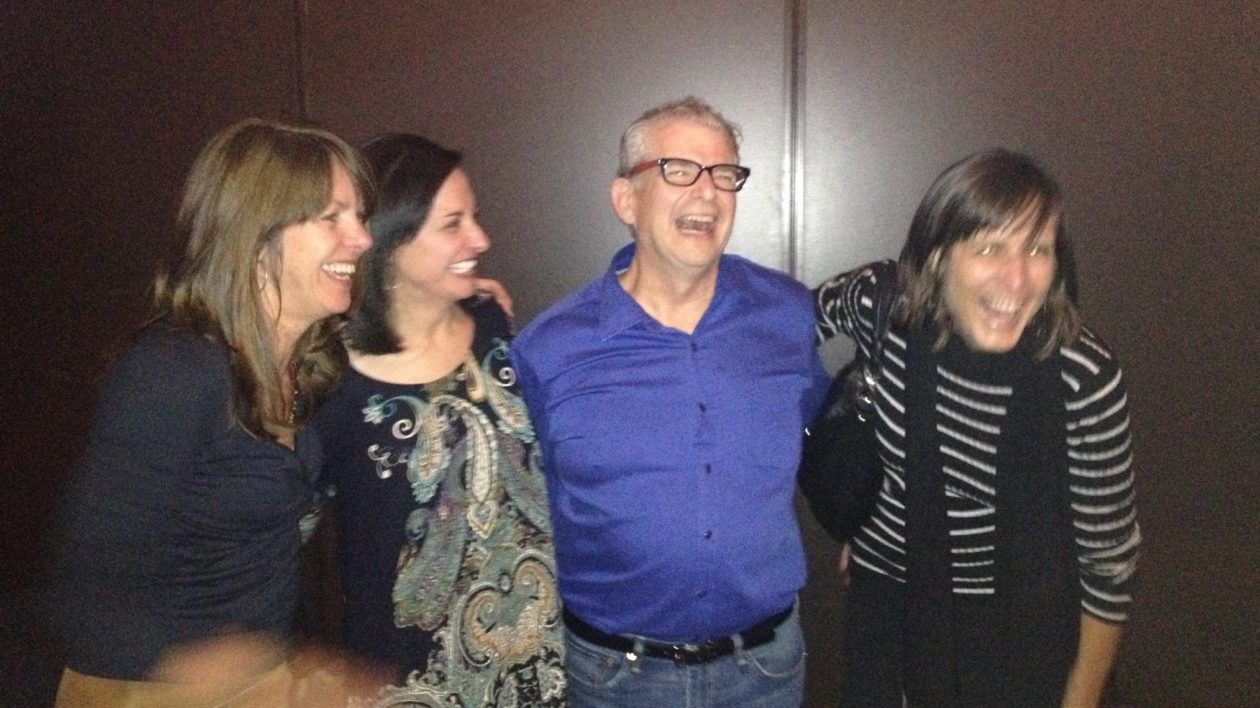
Jerry Touval
The Biggest of Hearts & One of the Best Scientists TNC Had
Jerry Touval worked for The Nature Conservancy’s Latin America Region for 27 years as Colombia Country Program Director, Latin America Science Director, and Senior Advisor for Land and Water Protection.
Jonathan Higgins and I spoke a lot and often over the course of our 25+ year friendship. Mostly we talked about music and TNC science, in that order. Other big topics of conversation were fishing and the ethnic food of our shared Jewish heritage, especially potato kugel, good bagels and lox, and Passover brisket.
Shortly after we met, we bonded over the music we both enjoyed, bands like the Grateful Dead and Little Feat. We were also both amateur musicians; Hig a master keyboard player and me a journeyman steel guitarist. There were even some opportunities for us to do some jamming together and we went off on broad musical explorations thanks to his knowledge and ability to play jazz and my ability to fake that I was actually following along.
Hig was also a better scientist than I am although that never stopped me from engaging in vigorous debates with him, debates that he usually ended up winning. At TNC meetings we would get into heated back-and-forth arguments. New TNC staff attending those meetings would sit back in silence and let the two of us have at it in public. And then they’d always stand in awe when, hours later after the meeting had concluded, the two of us would sit at the hotel bar laughing and swapping stories about who had been to the better Dead concerts in our youth.
Knowing that Hig was one of the best scientists TNC had, many times I went hat-in-hand to ask for his help in working through a particularly puzzling issue or process. He never hesitated to help, as he never hesitated to help anyone at TNC who asked for his assistance. Curmudgeonly exterior that he might have had, Hig had the biggest of hearts and was always available to lend a hand to colleagues who needed his help and guidance.
If the phrase “speaking truth to power” could be personified, it was Hig. When he knew he was right about something (which was pretty much all of the time), he would not hesitate in expressing his viewpoint to anyone at any level of hierarchy, within TNC or externally. He said what needed to be said and in most cases, we were all better off for having heard his perspective on what was being discussed.
After I retired in January 2022, Hig and I spoke weekly. I’d tell him about what I was doing in retirement and the music I was playing, and he’d tell me about his latest fishing trip or the Passover meal his sister had prepared. We talked about what was happening at TNC and who was doing what in the science realm. And of course, he would tell me who was doing things right, and who was doing things wrong. When I had some health issues, he checked in with me regularly to see how I was doing, despite his own rapidly failing health. We continued talking right up until the week before his passing.
Hig was my honored colleague and my dear friend. I will always think of him when I hear Little Feat singing about Tucson, Tucumcari, Tehachapi, and Tonopah.
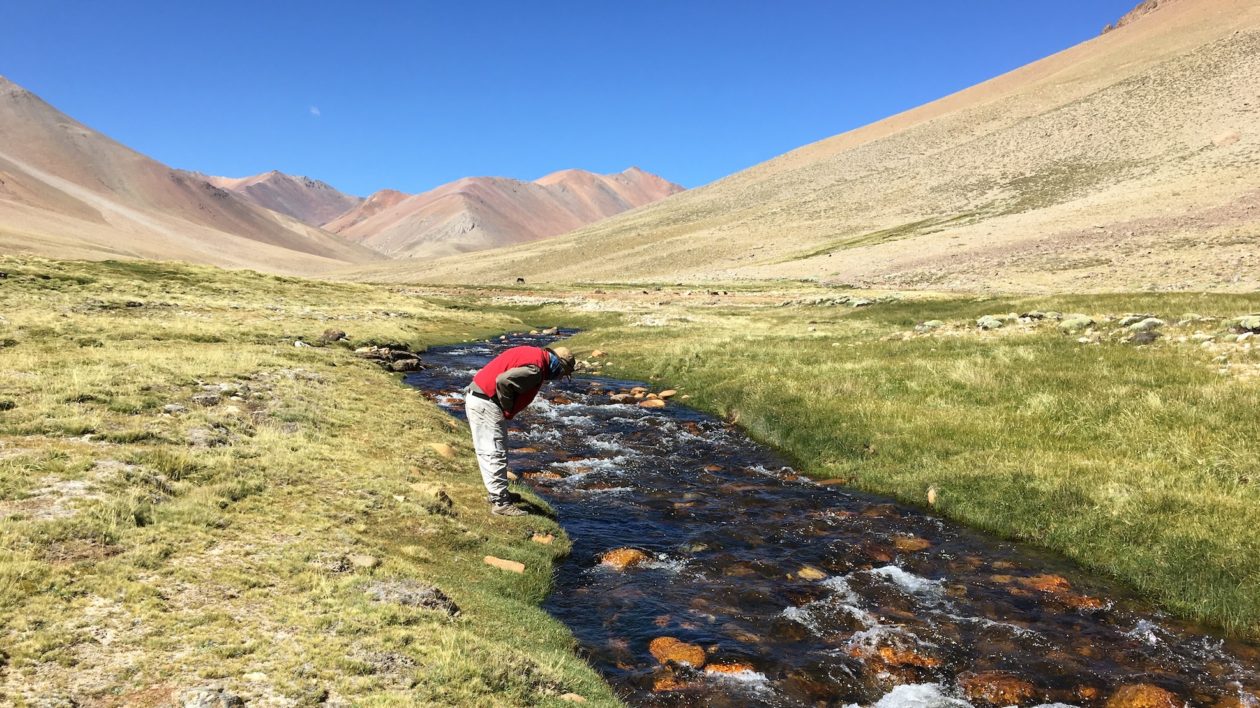
Amy Newsock
He Audaciously Rewrote the Boundaries of Conservation
Amy Newsock is a freshwater strategy advisor at The Nature Conservancy, working around the world to support projects deliver lasting results for nature and for people.
One of Jonathan’s lasting contributions to freshwater science and conservation was his commitment to encouraging and elevating young conservationists and scientists. His commitment even lives on in his Environmental Conservation Fund at his alma mater, Grinnell College. I know I’m not alone when I say that one of Jonathan’s many legacies will be the lessons he taught and the echoing words of encouragement he imparted in me and in so many young professionals and students who aspire to make an impact on the freshwater world as meaningfully as he did.
I am grateful to have worked with several resolute colleagues at TNC who woke up every day to beat the drum for freshwater – calling on all of us to think intentionally about fresh water. Jonathan beat that drum the loudest. He led a small group – one that he invited and encouraged me to join – to create a first-of-its kind definition and set of approaches for durable freshwater protection. I will never forget our project team calls. While we were strictly virtual, confined to a “Zoom world” in the earliest days of the Covid-19 pandemic, the conversations and debates were so lively, animated and yes – heated, I felt like I was in the same room as my colleagues.
Jonathan pushed us to break down the boundaries of conservation as we knew it. He audaciously rewrote them so our conservation future was more inclusive and intentional about fresh water. I’m a better and more committed conservationist thanks to him. It’s his lifelong commitment to freshwater conservation that inspires a brighter future for me, all of us that were so lucky to work with him, and for many who will enjoy the benefits of his service to freshwater in amazing places all over the world.
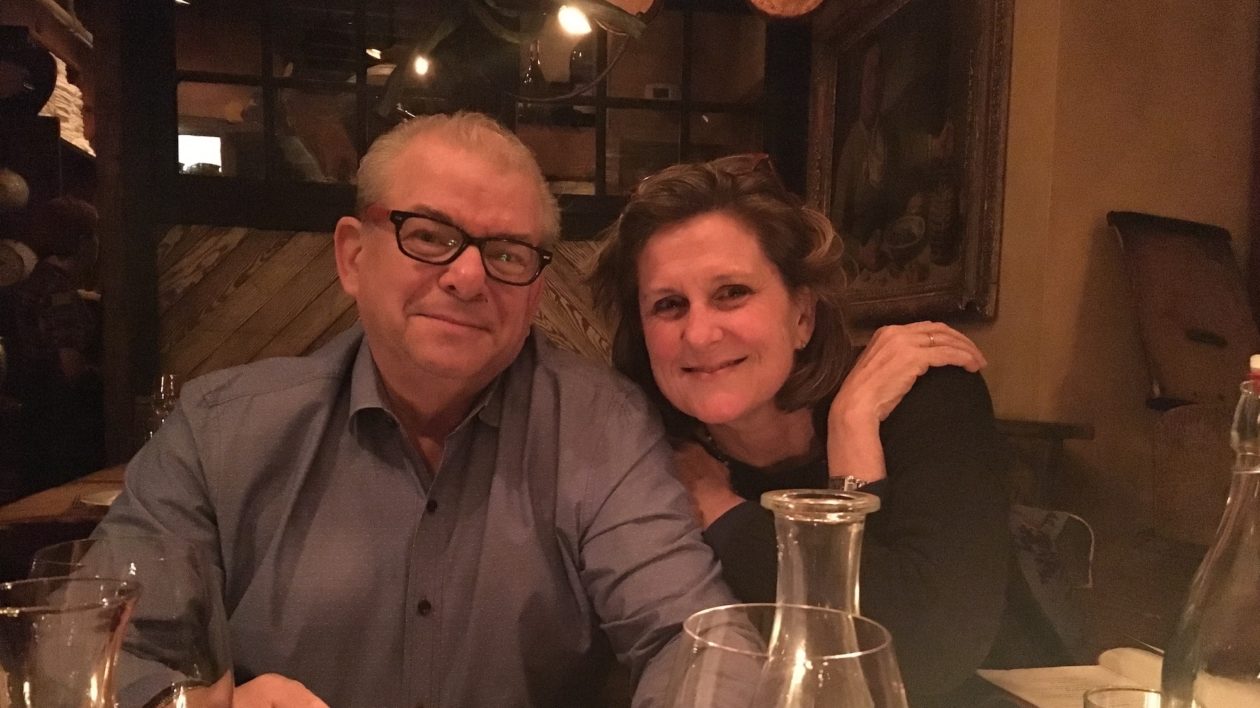
Jeffrey Parrish
Hig Fundamentally Changed the Course of TNC
Jeffrey Parrish is TNC’s Global Managing Director for Protect Oceans, Lands and Water.
Hig was without compare.
His knowledge and wit were as sharp as they come. His strong will and honest directness could set some off balance but were always welcome in a world too full of pretense. He traveled the world as an advocate for its freshwater creatures.
He fundamentally changed the course of the world’s largest environmental organization, The Nature Conservancy, using both his global-to-local science and conservation planning acumen, as well as his passion, to place freshwater front and center on our radar, and that of our partners. As a result, our mission and its expression were fundamentally changed for the better because of Hig.
He spoke truth to power. There wasn’t an executive he was afraid of setting straight, but science was always his guidepost. That was the same fearlessness he had as a kid marching for civil rights with his mom in the streets of Chicago, and all through his illness, even working with his freshwater team until the day when his final decline began.
Hig rolled up all that bravery, all that passion, and all that intelligence into a package with tremendous musical talents tickling the ivories, and with wicked skills as a fisherman. Most importantly, he had a heart for his friends as big as the Great Lakes, and the sweetest softness of an Appalachian stream in his soul for his one true love, Susan.
I miss you everyday, Hig.
Brian Richter
Questions That Came Like the Stinging Bite of Habanero Sauce
Brian Richter is president of Sustainable Waters and teaches water sustainability at the University of Virginia. He previously served as director of the Global Water Program of The Nature Conservancy.
Everybody knew he was brilliant. But sometimes he wasn’t very smart.
His brilliance was far-reaching. Jonathan Higgins made enormous contributions to freshwater science. His work enabled us to view the complexity of the planet’s rivers in a comprehensible way, categorizing them into “types” and “classes.” But he was so much more than a taxonomist of rivers; conservationists would bring him questions of all sorts, knowing that if he didn’t know the answer immediately you could trust that he’d find you a credible one. As a highly respected mentor to hundreds of young scientists over the course of his long career, his impact extends far beyond the horizon of his own lifetime.
But Jonathan could also surprise others with piercing questions of his own, questions that sometimes came like the stinging bite of habanero sauce. You see, “The Hig,” as we liked to call him, lacked many social graces and decorum. Most of us have our personality quirks and behavioral peculiarities rounded off over the course of our lifetimes, but Hig would have none of that softening. There were so many times I’d seen him go for the jugular, and your position or rank or prestige was a useless foil when he had you in his scope. The Hig spoke truth to power unabashedly. He wrote a very popular column in TNC’s internal science news titled “Straight, No Chaser.”
His Chicagoan brusqueness got him into trouble regularly. We used to laugh out loud over the fact that I had to save him from being fired on four occasions.
But Hig’s close friends knew that he had a soft and deep inner soul. He was like hard candy that, once cracked open, delighted you with gooey syrup. One of my fondest memories of him will always be the way he could play piano. He was magnificent on the piano. Long ago I got up the courage to ask whether he’d be willing to learn to play Joni Mitchell’s “River” for me. He played it for me many times, each time so beautifully that it always left me wistfully tear-eyed.
Thank you, my dear Hig, for all of this. But please be kind to the angels: I won’t be able to keep you from getting kicked out of heaven.
Mary Khoury
The Five Key-Attribute Framework for River Integrity
Mary Khoury is a freshwater ecologist with TNC’s Center for Resilient Conservation Science, in our North America Region. She weathered 2 legal-sized pages of questions about freshwater ecology in her job interview to become Jonathan’s first hire in 1995.
Jonathan read the aquatic ecology literature voraciously. He retained everything – and in my first months of working with him I marveled at how he never took notes but was ready to discuss even the finest details. What he read just became part of his conversations. And he deepened his understanding of the relevance to our work by seeking out the authors and talking to them extensively.
One such author was Jim Karr, a renowned freshwater ecologist, who devised the Index of Biotic Integrity to measure the health of streams. It was conversations with Jim Karr that led to Jonathan articulating the 5 key-attribute framework for river integrity that has become ingrained in the Conservancy’s work on freshwater conservation: habitat, hydrologic regime, water quality, connectivity and biotic composition (Higgins et al. 2021). These five key attributes have been my starting point for 27 years and I suspect will also be for many who never stop to wonder how that came to be.
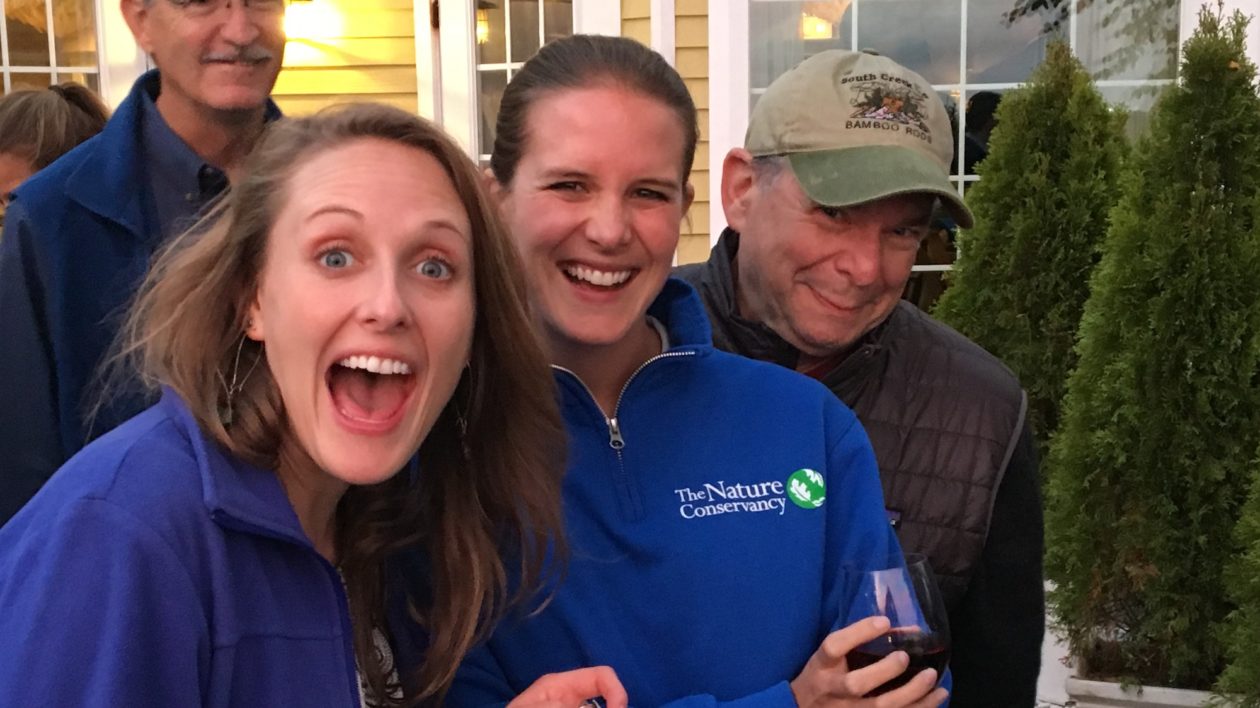
Colin Apse
His Approach is a Model for My Career Going Forward
Colin Apse has been working on freshwater biodiversity and ecosystem conservation at TNC for over two decades with the better half of his career focused in the Africa Region, where he serves a Freshwater Conservation Director.
In 2018, as I headed into my second cancer-related operation of the year clouded with anxiety, Jonathan Higgins was there for me.
Opening up fully to colleagues at The Nature Conservancy has never been my way, even after 22 years with the organization. But “Hig” was different. The Hig was an accomplished conservation scientist, pianist, and writer. But most of all, he was consistently honest and often very funny, ready to be open to those that were honest with him.
I met him while I was an intern at TNC over 2 decades ago, and although he intimidated me with his confidence, he quickly won me over with his willingness to riff off the ridiculousness of the term “oyster spat” in a workshop setting. In 2010, I was talking to him from his hospital bed as he struggled with cancer — with him joking about his bedsores while counseling me on how best to approach my upcoming scientific presentation. He coached me through one of the worst moments of my life, and I am stronger because of him (and fortunately cancer-free).
I remember, as do many others at TNC, watching our colleague Paulo Petry and Hig strut around in their matching tailored shirts in Cartagena, Colombia. And I remember being transfixed by Hig in a massive hotel lobby in Chicago (his home city) where he took over the hotel’s grand piano after midnight and played blues and favorites until the crowd teared up.
So long was Hig’s battle with cancer that Brian Richter, his good friend and our colleague, organized “Hig-fest” almost a decade ago to make sure everyone who cared about him all got a chance to celebrate and say goodbye to Jonathan. Fortunately, Hig-fest was premature. When Hig called me out of the blue to talk in recent years, it was generally about how to get freshwater biodiversity and intact ecosystem conservation back into the mainstream of TNC’s work. This was a shared passion, but TNC’s future was always a bit more urgent for him. Hig was leading our effort to advance durable freshwater protection in Gabon and around the globe until his last days. Hig went down fighting, doing what he loved, and keeping his sense of humor.
His approach, including his raw honesty throughout TNC and the freshwater conservation movement’s ups and downs, is a model for my career going forward. He was a mentor all the way through. Our last communication allowed me to be truly honest as I texted him, “I love you, man.”
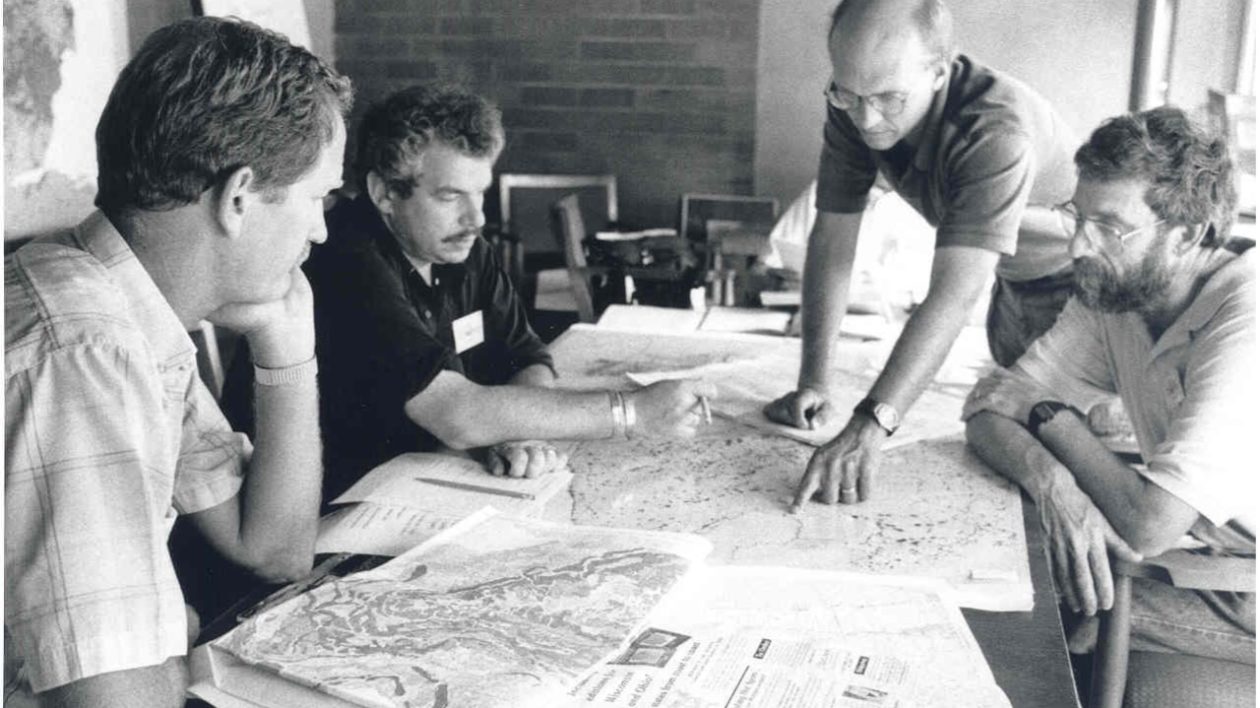
Mark Bryer
Brilliant Scientist, Irreverent Provocateur & Deeply Caring Mentor
Mark Bryer is the director of the Chesapeake Bay program at The Nature Conservancy.
I first met Jonathan Higgins in 1996. He was one of my first bosses at TNC, and like no other I had before or certainly since. From day one, he was equal parts brilliant scientist, irreverent provocateur, and deeply caring mentor.
Early on in our careers at TNC, Jonathan led a small group of us at TNC working to infuse freshwater into biodiversity conservation. Spurred by the Convention on Biological Diversity signed at the 1992 Rio “Earth Summit,” countries around the world began planning for protected areas that fully represented their biological diversity. “Aquatic ecosystems” were mentioned right up front in the Convention, but few people, if any, knew how to systematically describe their diversity.
Jonathan, with a team of scientists and partners from around the world, quickly stepped into the gap and built a framework to do just that. The result – a quarter century since Jonathan began this work – are maps and descriptions of aquatic ecosystems across six continents, and better representation and protection of freshwater biodiversity. Quite an accomplishment, and one of many that Jonathan helped make happen.
And while what Jonathan accomplished is certainly worth remembering, I think how he did it is equally if not more important, and certainly more instructive for each of us. Here are three lessons I learned from Jonathan:
- Have integrity. Jonathan taught me after one of our early workshops in Brazil not to be afraid to contradict someone if you believe that you’re right. Granted it almost got me fired when I tried it later with a former TNC CEO — but it stands, nevertheless.
- Build a team that thinks differently than you do. A personality test revealed that Jonathan’s first two hires at TNC (Mary Khoury and myself) were diametrically opposed from him in our analytical approach. His response: “COOL!” That difference made us a great team, and I think about that every time I’m forming a new team or hiring someone.
- Enjoy yourself. Through our many trips around the world, Jonathan showed me the importance of working hard and appreciating life’s finer things, like a glass of old port, the unique sound of a Hammond B3 organ, or scorching hot Indian food.
Although I hadn’t worked directly with Jonathan for the past 15 years, I’ve carried these lessons with me every day. He and I remained close friends and spoke regularly, often via the “out of the blue” call from Jonathan – the unscheduled, unplanned kind that you always take. The call always started with a rant (usually about a recent decision made within TNC), then a challenge (often a scientific conundrum he was wrestling with), and finally a rave (usually about an excellent gastronomic, musical, or fishing experience he’d had).
And, as abruptly as it began, the call would end. Mid-sentence, Jonathan would cut you off and say “Gotta go – I’ll talk at you later. Click.” I miss “getting Higged” as we called it – and him – terribly.
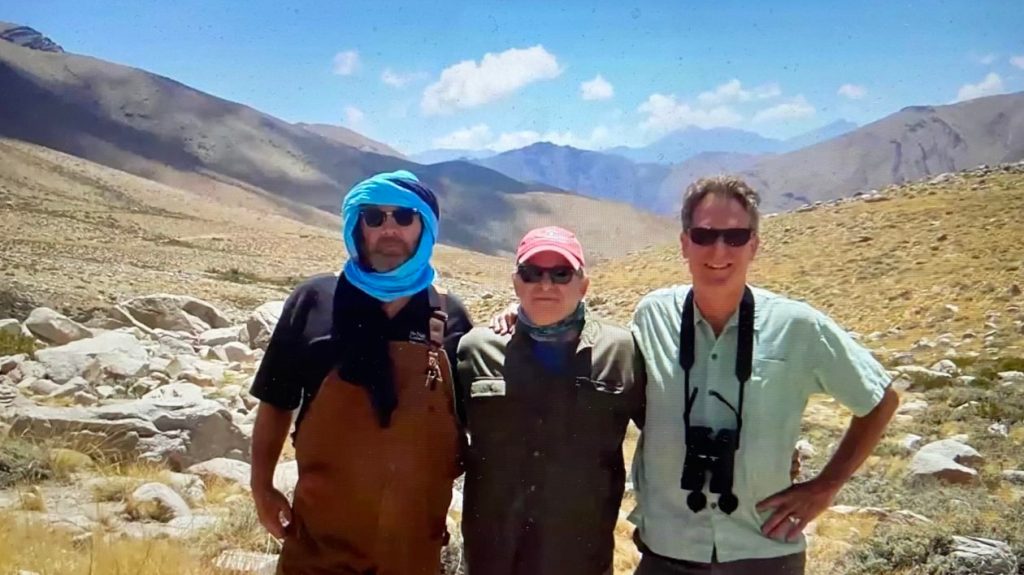



Join the Discussion